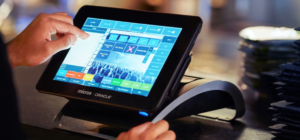Responsible Service of Alcohol Training

Our Online RSA Course is super-fast and easy to use. It is designed to work on all devices. This includes phones, tablets, laptops and desktop computers. You can stop and resume at any time 24/7. You progress is automatically saved and you can switch devices.
We are a nationally accredited Registered Training Organisation (RTO: 40592), and are registered with all relevant federal and state government bodies such as Liquor & Gaming NSW, OLGR, RGL & ASQA.
We do not outsource any of our Responsible Service of Alcohol training or support. All support is done locally by Express Online Training staff who are fully qualified as Trainers or Assessors. Also, we have extended support hours 7 days a week.
RSA Certificate
Our RSA Certificates (SITHFAB002 Statement of Attainment or NSW Interim Certificate) are available for download and printing as soon as you have passed the RSA course and completed your RSA enrolment information (24/7). We also offer a service to send you the original paper RSA certificate by mail.

Our “Pay when you pass” policy means that you only have to pay when you have passed the free non-assessable RSA course and want to enrol to complete the full SITHFAB002 course.
What is an RSA
Completing an approved Responsible Service of Alcohol (RSA) program gives participants the skills and knowledge to contribute to a safe and enjoyable environment in licensed premises.
Face-to-face RSA training is mandatory for licensees and staff selling, offering or serving liquor for general, on-premises, late night and packaged liquor licences.
Why Complete an RSA Course?
Licensees and staff are subject to mandatory RSA requirements and have one month from the date they first sell, offer for sale or serve liquor on the licensed premises to complete an RSA program.

They will then need to complete the approved RSA online refresher course every three years.
The RSA program covers a range of topics including:
- problems associated with excessive consumption
- alcohol and the law
- the question of who is responsible for RSA
- facts about alcohol
- improving the atmosphere of your premises
- handling difficult customers.
Advanced RSA training course
Please check out our Advanced RSA page for more information about the Advanced RSA training course.
Licensee requirements
The obligation for a licensee to maintain a RSA register is no longer mandatory. Licensees can continue to voluntarily use the registers if they wish.
A licensee must still provide relevant RSA training information to VCGLR inspectors upon request. Information that may be requested includes:
- the name of the responsible person at the licensed premises
- the name of each person who is engaged in the sale and service of liquor and the date on which each person first sold or served liquor on the premises.
If a licensee holds any other licence containing a specific condition requiring it to keep an RSA register, the licensee is only required to hold a copy of the most recent RSA certificate or evidence of an approved RSA program completion issued to any staff member involved in the sale and service of liquor.
Compulsory RSA training
RSA is compulsory for anyone selling, offering or serving liquor under the following types of liquor licences:

- general
- on-premises
- late night
- packaged liquor
It’s also compulsory in other situations where there is a special condition on the liquor licence or if you’re applying for a new liquor licence.
When it’s compulsory to complete RSA training, staff have one month from the date on which they first supply liquor to complete the course.
A person under the age of 18 can complete the RSA course but must wait until they’re 18 to use it.
Lost RSA certificates
If you need a copy of your original RSA certificate, please let us know via the contact us page. There is a charge of $16.50 (including GST) for a replacement certificate.
If you’ve lost your original RSA certificate you’ll l need your certificate number to do your RSA Refresher course online.
When you’ve completed the RSA Refresher course, you will be able to print a copy of your certificate. . This certificate is evidence of your completion of the RSA Refresher course.
If you want to print another copy of your RSA Refresher certificate, please visit RSA online services. There’s no charge for reprints of RSA Refresher certificates.
Where to complete RSA courses
In Victoria, the initial RSA course must be the approved VCGLR course and undertaken face to face. . For a list of organisations that deliver the VCGLR approved RSA course, visit RSA training providers (XLS, 160.5 KB).
Please note, initial RSA courses completed online do not meet the requirements of Victorian liquor laws.
Keeping your RSA certificate up to date
Your initial RSA certificate does not expire but you must complete the free RSA online refresher course every three years.
The course is broken down into small, manageable sections designed to improve your learning. At the end of each section is a multiple-choice quiz.
- You are required to get all questions in a section correct before moving to the next section.
- If you answer any of the questions incorrectly, you will only be required to answer those questions again
- You can review the learning materials during the assessment.
- You can take the assessment / quizzes as many times as you need
The Responsible Service of Alcohol (RSA) course covers the following elements as essential outcomes of this unit of competency. Performance criteria describe the performance needed to demonstrate achievement of the element.
Elements and Performance Criteria
Element 1
Sell or serve alcohol responsibly.
- Sell or serve alcohol according to provisions of relevant state or territory legislation, licensing requirements and responsible service of alcohol principles.
- Where appropriate, request and obtain acceptable proof of age prior to sale or service.
- Provide accurate information to customers on alcoholic beverages according to organisation or house policy and government legislation.
- Assist customers with information on the range of non-alcoholic beverages available for purchase.
- Identify issues related to the sale or service of alcohol to different types of customers, especially those at risk, and incorporate them into sales or service.
Element 2
Assist customers to drink within appropriate limits.
- Prepare and serve standard drinks or samples according to industry requirements and professional standards.
- Use a professional manner to encourage customers to drink within appropriate limits.
- Recognise erratic drinking patterns as an early sign of possible intoxication and take appropriate action.
- Monitor emotional and physical state of customers for signs of intoxication and effects of illicit or other drug use.
- Where appropriate, offer food and non alcoholic beverages.
- Decline requests for alcohol to be dispensed in a manner that is irresponsible and advise customers of the reasons for the refusal.
Element 3
Assess alcohol affected customers and identify customers to whom sale or service must be refused.
- Assess intoxication levels of customers using appropriate methods.
- When assessing intoxication, take into account factors that may affect individual responses to alcohol.
- Identify customers to whom sale or service must be refused according to state and territory legislation.
Element 4
Refuse to provide alcohol.
- Refuse sale or service in a professional manner, state reasons for the refusal, and where appropriate point out signage.
- Provide appropriate assistance to customers when refusing service.
- Where appropriate, give customers a verbal warning and ask them to leave the premises according to organisation or house requirements, the specific situation and provisions of state or territory legislation and regulations.
- Use appropriate communication and conflict resolution skills to handle difficult situations.
- Refer difficult situations beyond the scope of individual responsibility to the appropriate person.
- Promptly identify situations that pose a threat to the safety or security of colleagues, customers or property, and seek assistance from appropriate colleagues according to organisational policy.







